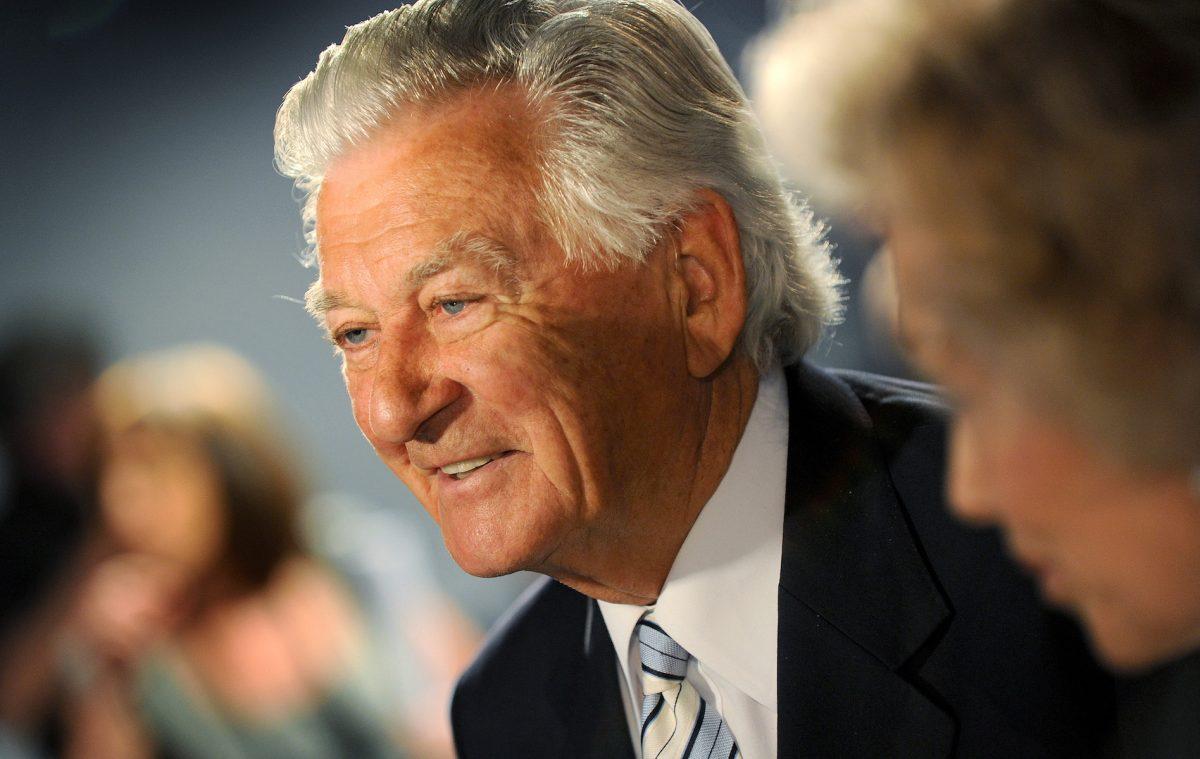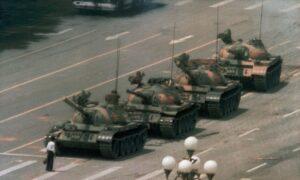‘The frontline doctors who answered were all extremely anxious, saying they had run out of everything,’ said neurologist Huang Chen-ya.
It’s been over 35 years, but that hasn’t stopped 85-year-old Huang Chen-ya from remembering how much Hong Kongers “deeply loved” China.
A former Hong Kong legislator and neurologist, Huang was a leading figure in the city’s medical community in 1989.
The first thing he did when news broke of the Tiananmen Square Massacre on June 4, 1989 was contact major hospitals in Beijing.
“As a doctor, what I was most concerned about was whether I could do anything to help the people who had been killed or injured,” he told a rally marking the 36th anniversary of the Massacre, held in Ashfield, Sydney, on June 1.
“I called every major emergency relief centre, and the frontline doctors who answered were all extremely anxious, saying they had run out of everything …“ Huang said. ”All the major emergency hospitals in Beijing—every frontline doctor I spoke to—gave me the same response.”
Candles at a candlelight vigil mourning the victims of the 1989 Tiananmen Square massacre in Washington on June 2, 2023. Madalina Vasiliu/The Epoch Times
He was prepping emergency medical aid to be airlifted from Hong Kong to Beijing, but it needed to be agreed upon by hospital leadership.
“When we reached the higher levels, each director immediately changed their tone and said that this matter wasn’t as serious as it seemed, that Beijing could handle it on its own, and didn’t need any outside help,” he said.
“The Tiananmen Square Massacre is not just a tragedy for the Chinese, not just for ethnic Chinese, not just for Asians—it’s a shared shame and trauma for all of humanity,” he said.
The Massacre was a watershed moment for both Australia and China.
For China and its people, hopes of democracy were instantly extinguished, while for Australia, 42,000 Chinese people were granted permanent residency—including students, doctors, academics, and artists—another addition to the evolving fabric of Australian society.
Staying Awake All Night in Sorrow
Li Yuanhua, then a lecturer at China’s Capital Normal University in Beijing, said he had gone home, admitting he was afraid of walking out.
“I was very sad after I got home,” he said.
Li waited at home while gunshots rang through the night like firecrackers on New Year’s Eve.
He didn’t sleep that night, figuring that the students at Tiananmen Square had met with misfortune.
“I took a small stool and sat at the doorstep, shedding tears silently.”



Student Finds Out the Truth Overseas
Wiki Chan, a student doing his PhD degree, is one of many Chinese students who learn about the full extent of the Chinese Communist Party’s dark history once overseas.
“I think we still need to remember history—both the good and the bad should be brought to light for people to understand,” he told The Epoch Times at a photo exhibition at the University of Sydney on May 30, commemorating June 4.
It’s Chan’s first time seeing such a large-scale formal photo exhibition.
“History exists as it is. You can have your own subjective opinions, but hiding the negative parts is wrong—it’s extremely evil. Especially when it comes to the suppression of voices calling for human rights and freedom. It actually exposes that regime’s own lack of confidence,” he said.

A banner was displayed at a Tiananmen Square massacre photo exhibition held in the University of Sydney on May 30, 2025. Cindy Li/The Epoch Times
Labor Urged to See CCP’s Nature
Li, now an Australian citizen, said the late Labor Prime Minister Bob Hawke’s decision to approve 42,000 permanent residency visas for Chinese students was a good decision in response to the Massacre.
“He understands the destructive nature of this communist regime—its harmfulness, its brutality toward its own people … Out of his conscience, he made a decision from his position that, looking back today, we see as a truly noble and courageous act.
“I think today’s Labor government should take a closer look at what the CCP has done throughout history. You really can’t just listen to what the CCP says.”
Li referred to the CCP’s deliberate obstruction when former Prime Minister Scott Morrison first called for an independent investigation into the origin of COVID-19 in 2020.
In response to Morrison’s call, the CCP imposed trade restrictions and tariffs on Australian exports, including beef, barley, and coal, which were widely interpreted as economic retaliation.

The former Labor Australian prime minister Bob Hawke in Brisbane on Aug. 16, 2010. William West/AFP/Getty Images
“The communist party, in reality, does not engage in normal dialogue with you. It only knows how to force you into submission, to bully you, and it wants you to kneel … There is fundamentally no concept of equality,” Li said.
The former professor cited the CCP’s denial of Hong Kong’s autonomous status, describing the Sino-British Joint Declaration as a “historical document” that “no longer holds practical significance.”
Signed in 1984 by the UK and the CCP, the Sino-British Joint Declaration outlined the terms for ending British rule over Hong Kong after more than 150 years. It also guaranteed the city’s rights and freedoms under the “one country, two systems” framework.
“I think from Australia’s perspective, if you view it from an economic standpoint: as the world’s second-largest economy and our biggest trading partner, you will never truly understand it,” Li said.
“We should also examine it from a humanistic perspective, and not view it as a normal government or a normal political party. It is not; it is a devil, disguised as a normal entity.”


